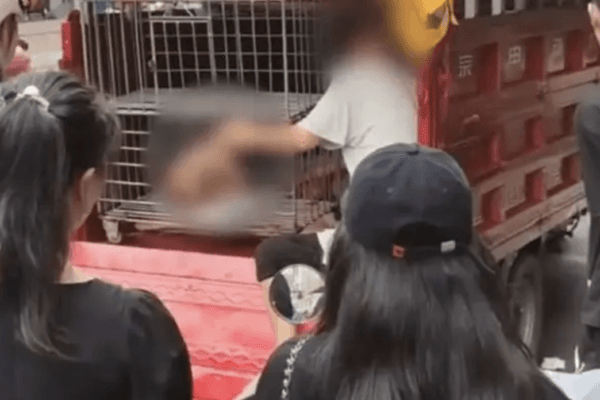The video of a toddler locked in a cage in the rear of a vehicle in the city of Haikou on China’s Hainan Island went viral on June 17, triggering concerns among Chinese netizens, with many raising suspicions of human trafficking.
State media reported the incident the next day, citing local police investigations, saying that the incident involved a family of eight. According to the police, the child climbed into the cage “voluntarily” and therefore caused a misunderstanding. However, the official narrative has drawn widespread skepticism online.





